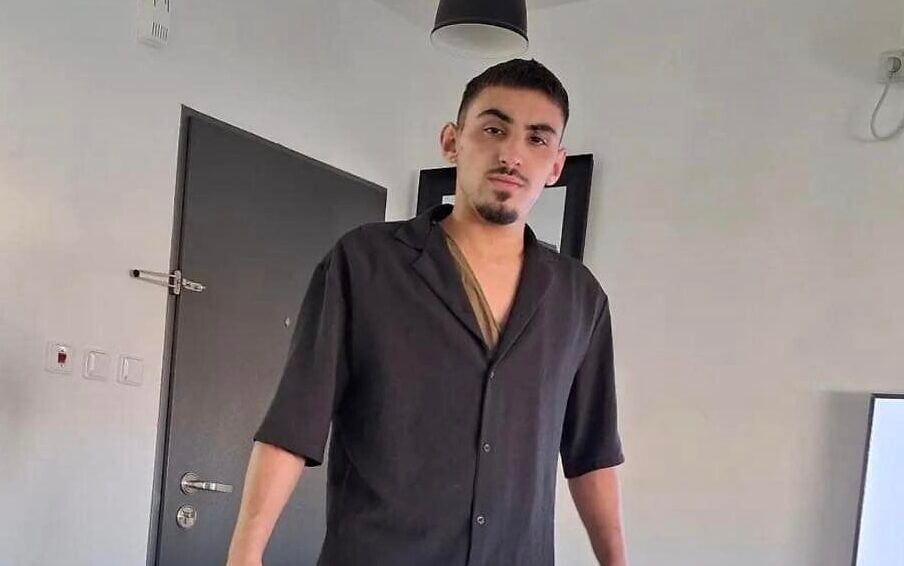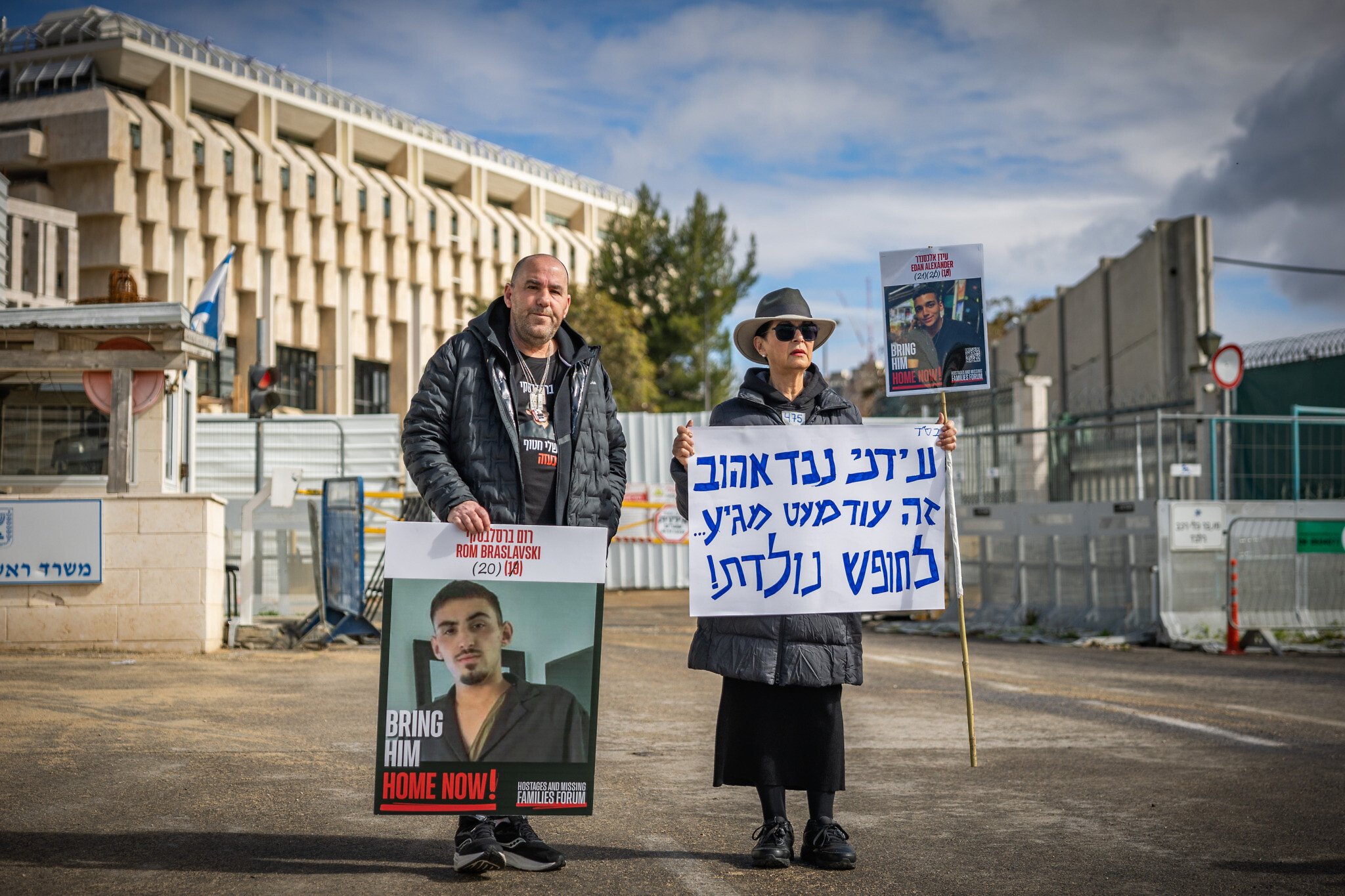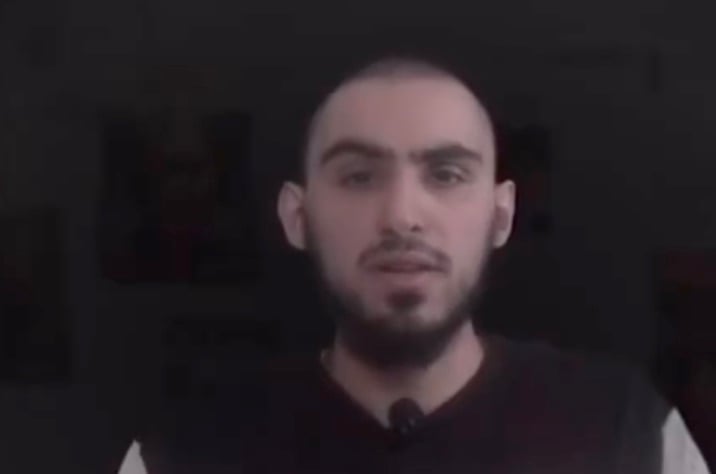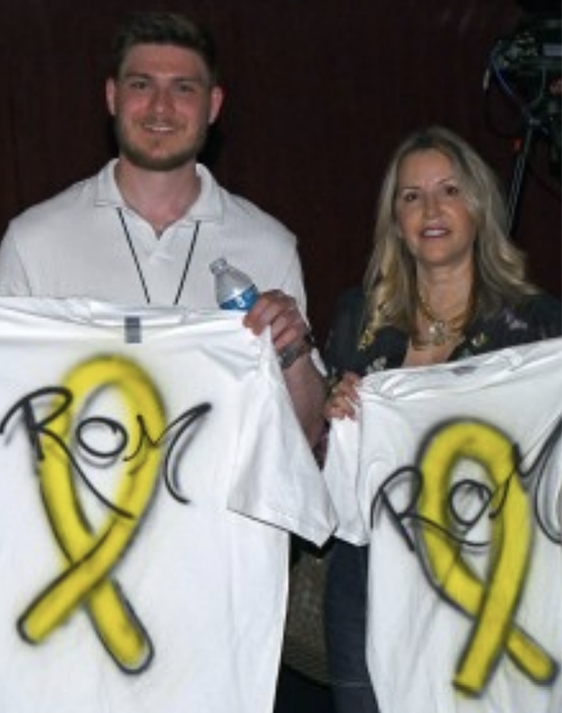



When hostage Rom Braslavski is finally released from Islamic Jihad captivity in Gaza, his aunt Anat Braslavski plans on taking him to Los Angeles to repeat a trip he took there a decade ago.
“I envision that all the time,” said Braslavski, who lives in California’s San Fernando Valley. “He loves America, and I would love to bring a hero back to our country. That’s my message to the current administration. We need to yell that through a megaphone.”
After months of avoiding media, given concerns about Rom’s status as an active soldier who was off-duty when he was taken captive on October 7, his family in the US is speaking out, looking to bring attention to the young man who is about to mark 21 months of captivity in Gaza.
Braslavski Ben-Menahem, her son Roye Ben-Menahem, and her mother Yael Braslavski spoke to The Times of Israel on a video conference on Friday.
“He’s 21 now; he’s had two birthdays in captivity,” Anat said of her nephew. She is the only sibling of Rom’s father, Offir Braslavski, who lives in Jerusalem.
Roye, Rom’s first cousin and a medical student at Western University in Pomona Valley, said that when he gave a talk about his cousin and the hostage situation at the University of California, Riverside last December, it was just as Rom was turning 21 in captivity.
“I asked the students what they did for their 21st birthday,” said Roye. “It made them think about the reality of his situation.”
Braslavski was taken hostage on October 7, 2023, from the Nova desert rave, where he was working as a security guard during a long weekend off from his army service.
Now, 21 months later, his family has heard from survivors how Braslavski rescued partygoers and encouraged others to keep running to escape the massacre that unfolded that day, when more than 5,000 Hamas-led terrorists invaded southern Israel, killing some 1,200 people and taking 251 hostages, during acts of brutality and sexual assault.
Rom was not taken hostage until hours after the initial 6:30 a.m. attack, sometime between 2 p.m. and 4 p.m.
During those first days after October 7, the Braslavski family in Los Angeles, including Rom’s grandmother, his aunt, and the rest of the family, assumed the worst must have happened and that Rom had been killed by Hamas terrorists during the onslaught.
“They were waiting for the knock on the door,” said Braslavski Ben-Menahem.
When the family was notified nearly two weeks later that Rom had been taken hostage, it offered them some hope.
“We’re still holding onto that hope,” said Braslavski Ben-Menahem.
Now, as the families of the 50 hostages who remain in Gaza (many of them no longer alive) are about to mark 21 months of captivity for their loved ones, the extended Braslavski family in the US is working on obtaining dual citizenship for Rom.
They tried to obtain American citizenship for Rom after he was first taken captive, but were unable to do so since he was already 19 and no longer a minor.
“You see how America has helped with the hostage situation,” said Braslavski Ben-Menahem. “We are American citizens. I’ve been here for 30 years, my mother has been here for 27 years.”
Now, Rom’s father is seeking German citizenship due to the family’s German roots, something they believe may be more achievable with the new conservative government in place in Berlin.
Braslavski Ben-Menahem is also trying to meet with US Mideast envoy Steve Witkoff.
“I’m glad that the hostages are back in the news after the conflict with Iran,” she said.
“Now is the right time to really push for the release of all the hostages,” said Roye Ben-Menahem. “The Iranian gravy train for Hamas and all the other terror organizations is gone now that Iran is focused on rebuilding itself.”
Still, said Yael Braslavski, Rom’s paternal grandmother, “It looks like nothing helps.”
There have been some moments of hope in the last 21 months.
When Rom appeared in an Islamic Jihad propaganda video released in April of this year, he spoke of his suffering, the lack of food and water, and his sicknesses, raising his shirt to show red sores on his stomach. It was the first time Rom’s family and friends had seen him since he was taken captive.
“Oh my God, it was hard to see,” recalled Anat.
“It was also a relief,” said Roye. “He was skinny, his eyes were sunken, and he was clearly acting the whole time, not speaking his own words, but it was him; it was Rom.”
In the propaganda video, Rom called out the Israeli government and army for bombing Gaza.
“The tone of his voice didn’t sound like him,” said Anat. “It was clear that it was PIJ telling him what to say.”
A few weeks later, the Los Angeles portion of the family met with released hostage Sasha Troufanov, who had been held briefly with Rom in captivity and who was freed as part of the January 2025 ceasefire.
“He’s such a nice guy,” said Anat. “He told us about Rom, about the time they were held together. He shared some details.”
Most significantly, Troufanov confirmed that hostages taken captive by Islamic Jihad are generally held alone, as Troufanov was for much of his captivity, sometimes left chained by himself in a dark tunnel.
“I told [Rom’s father] Offir, ‘See how Trump is involved and how [Russian President Vladimir] Putin did get Sasha [Troufanov] out,” said Anat.
Days before Troufanov’s release from PIJ captivity in February, a deputy Russian foreign minister met with a senior Hamas official in Moscow and urged the terror group to keep “promises” to release Troufanov, a dual Russian-Israeli citizen, and Maxim Herkin, an Israeli hostage from the Donbas area of Ukraine who has Russian relatives. Herkin is still held in Gaza.
Rom’s family spoke of the support they feel from the Israeli and Jewish communities in Los Angeles and also noted the sense that more could be done to help Rom and the other hostages.
Roye, who is president of the Jewish club at his medical school, said fellow Jewish students are supportive, and everyone knows about his cousin, but the family often feels that they do not have anyone to turn to for support or help in their ongoing plight.
“No one has contacted me from the Israeli embassy,” said Anat. “Sometimes I don’t know who to talk to.”




